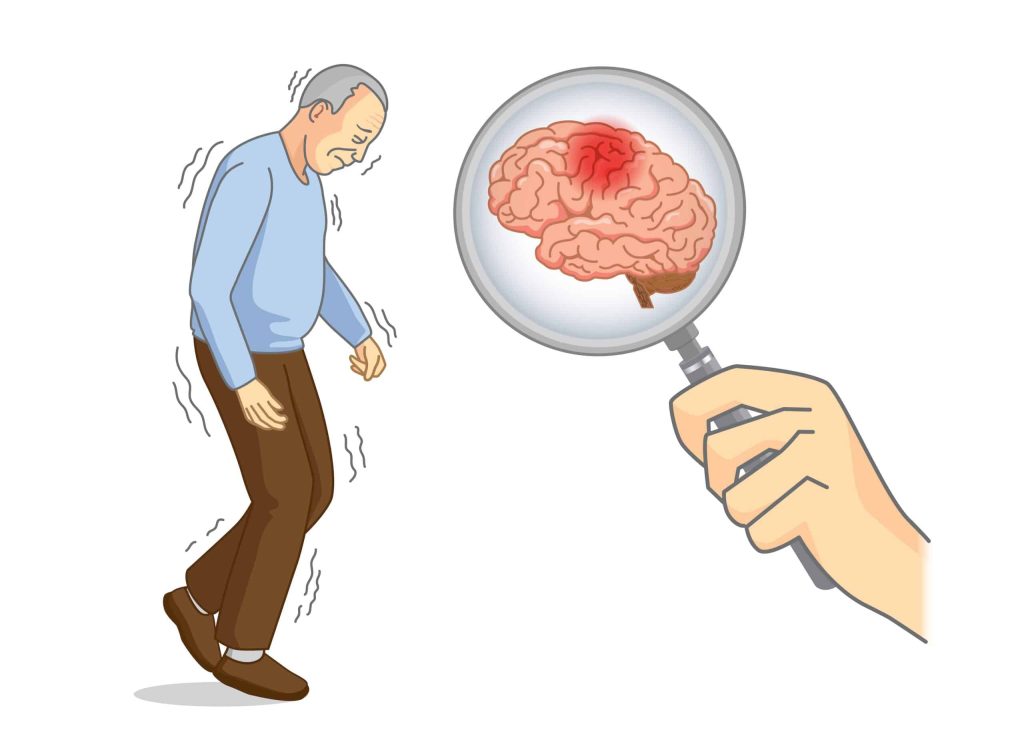
Adelekan Oluwaseun Ojo.
Parkinson’s Disease (PD) is a progressive neurodegenerative disorder that affects movement. Named after Dr. James Parkinson, who first described the condition in 1817, it is characterized by a loss of dopamine-producing brain cells. This loss leads to a range of motor symptoms and, in some cases, non-motor symptoms as well.
Definition:
Parkinson’s Disease is a chronic and progressive movement disorder that primarily affects the motor system. It is often marked by tremors, stiffness, slowness of movement, and impaired balance and coordination. As the disease advances, it can also bring about cognitive and behavioral changes.
Causes:
The exact cause of Parkinson’s Disease is not yet fully understood. However, it is believed to involve a combination of genetic and environmental factors. Some potential causes and risk factors include:
Genetic – Certain genetic mutations have been linked to an increased risk of Parkinson’s, although it’s not purely hereditary.
Environmental Factors – Exposure to toxins like pesticides and herbicides may contribute to the development of PD.
Age – The risk of Parkinson’s Disease increases with age, typically appearing in people over the age of 60.
Lewy Bodies – These abnormal clumps of proteins found in the brains of Parkinson’s patients are associated with the death of nerve cells.
Symptoms:
The symptoms of Parkinson’s Disease can vary from person to person, and they often develop gradually. Some common symptoms include:
Tremors – Involuntary shaking, usually starting in a limb, often when it’s at rest.
Bradykinesia – Slowness of movement, making simple tasks difficult and time-consuming.
Muscle Rigidity – Stiffness in the limbs and trunk, making it challenging to move freely.
Impaired Balance and Coordination – Difficulty with walking and maintaining balance.
Loss of Automatic Movements – Reduced ability to perform unconscious movements like blinking and swinging arms while walking
Speech Changes -Softening of voice or slurred speech
Non-Motor Symptoms – These can include depression, constipation, sleep disturbances, and cognitive changes like memory problems.
Diagnosis and Treatment:
Diagnosing Parkinson’s Disease can be challenging, as there is no definitive test. Doctors rely on medical history, symptoms, and sometimes imaging tests to make a diagnosis. While there is no cure for Parkinson’s Disease, several treatments and therapies can help manage symptoms and improve quality of life:
Medications – Dopamine agonists, MAO-B inhibitors, and other medications can help alleviate symptoms by increasing dopamine levels or mimicking its effects.
Surgery – Deep Brain Stimulation (DBS) surgery may be an option for some patients, where electrodes are implanted into specific areas of the brain to regulate abnormal impulses.
Physical Therapy- Exercises and physical activities can improve mobility, balance, and flexibility.
Speech Therapy -Helps with communication challenges often associated with PD.
Occupational Therapy- Focuses on maintaining independence in daily activities.
Lifestyle Recommendations – Exercise Regularly Physical activity has been shown to improve mobility and overall well-being.
Healthy Diet – A balanced diet rich in fruits, vegetables, and whole grains is beneficial
Stay Socially Active – Engaging with friends, family, and support groups can provide emotional support.
Manage Stress -Stress can worsen symptoms, so stress-reducing techniques like yoga or meditation may help.
Conclusion:
Parkinson’s Disease is a complex condition that affects millions of people worldwide. While it presents challenges, advances in research and treatment have significantly improved the quality of life for those with PD. Increased awareness, support, and continued research are crucial in the ongoing fight against Parkinson’s Disease.
If you or a loved one are experiencing symptoms suggestive of Parkinson’s Disease, it’s essential to consult with a healthcare professional for proper diagnosis and management. Early intervention and a comprehensive treatment plan can make a significant difference in managing the symptoms and maintaining a fulfilling life.
………….Adelekan Oluwaseun Ojo, is a counseling psychologist, and a business & health consultant with Jigsimur Zdex Int’l, a company which is into the production and distribution of Jigsimur herbal health drink, a natural curative and preventive herbal medicine from South Africa.
For personal consultation, you can contact us on 07089225319 or 08035122399









My husband was diagnosed of Parkinsons disease 2 years ago, when he was 49. He had a stooped posture, tremors, right arm does not move and also a pulsating feeling in his body. He was placed on Senemet for 8 months and then Sifrol was introduced and replaced the Senemet, during this time span he was also diagnosed with dementia. He started having hallucinations, lost touch with reality. Suspecting it was the medication I took him off the Siferol (with the doctor’s knowledge) and started him on PD-5 natural herbal formula we ordered from AKNNI HERBAL CENTRE, his symptoms totally declined over a 3 weeks use of the AKANNI HERBAL Parkinson’s disease natural herbal formula. He is now almost 51 and doing very well, the disease is totally reversed! (Visit w w w.aknniherbscentre .com)
Ok.